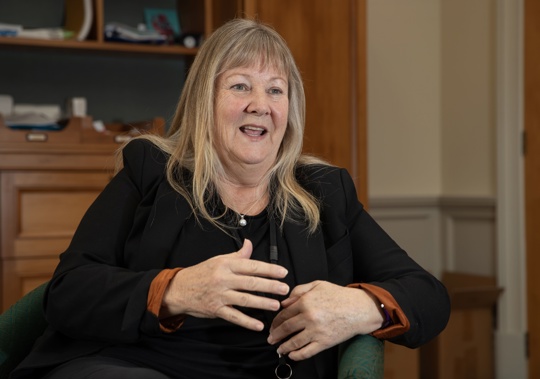
The dream of centralised polytechnics is over as the Government begins disestablishing Te Pūkenga as part of its 100-day plan.
Newly elected Tertiary Education and Skills Minister Penny Simmonds hopes the move will stop the financial bleeding.
The Government has demanded Te Pūkenga, the result of the recent merging of 16 Institutes of Technology and Polytechnics (ITPs) across the country, cease all "any activities that are inconsistent with disestablishment".
This included recruiting and staff restructuring activity, and other actions that will make it difficult to re-establish former ITPs as institutions.
Simmonds, who is the former chief of the Southern Institute in Invercargill, told the Mike Hosking Breakfast the Government would aim to at least halve the number of polytechnic providers.
"I think we'll have about eight to ten and the final configuration has to be done talking to the communities around each of those polytechnics," said Simmonds.
"It certainly won't be going back to 16 and it won't be a bloated, expensive head office."
Simmonds lamented the fact the revenue-losing exercise had cost the previous Government up to $100 million, as well as seeing a downturn in the number of international and domestic students.
Staff turnover had also increased, although Simmonds believed there is still good staff ensuring students are enjoying a good study experience, and her goal was to allow them to make better decisions.
Hosking believed the only issue with disestablishing the merger was more change for the staff and students involved, which Simmonds agreed with.
"It's very hard [for staff and students], we've got to be focused on keeping students safe throughout this and making sure we're working with teachers and employers," she said.
"But you have to remember, staff have been on tenterhooks since April 2020 waiting on what would come out of this present situation - so we need to move quickly over the next five to six months to get things sorted out for them."
Simmonds said delivery on-campus needs to continue despite the ongoing changes.
"It's that management layer, that decision-making layer that needs to change - so staff on the ground will need to keep doing what they've been doing so well throughout this."
Hosking asked if the centralised model still had benefits worth keeping - such as avoiding "weird and handicraft" courses, which would control the supply and demand curve.
The minister agreed there was value in shared services and they would be investigated.
"There should be sensible decisions made over the things you've talked about - but that has to be driven by the community," she said.
"If the community wanted handicraft courses and they could be sustainable financially with student numbers, then I guess that's what the community wants to be focused on. If there's strong engineering and agriculture in regions, if there are emerging industries like animation, they should be what the communities are saying need [funding].
Take your Radio, Podcasts and Music with you









